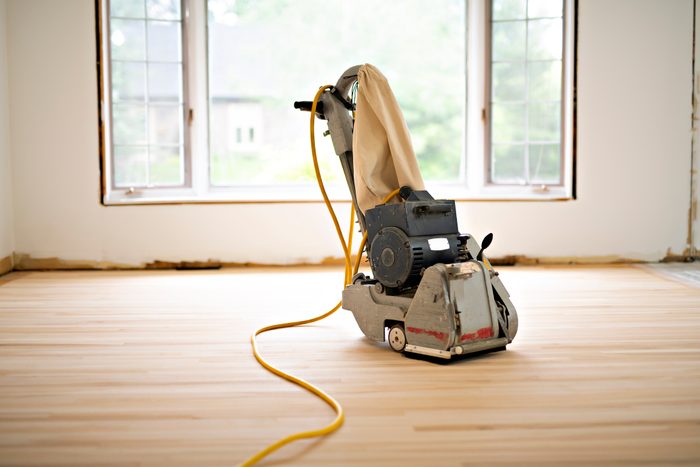
Floor Sanding Equipment
A set of floor sanding equipment includes a drum or orbital sander and a powerful disc sander, called an edger, for sanding right up to the baseboards. Together they would cost several thousand dollars to buy, but you can rent them together for about $140 a day or $550 a week.
When renting a drum sander, choose a heavy one with a clutch if you want professional results. For light sanding (removing a single coat of finish with no leveling required), choose an orbital flooring sander with a round base. You might not need the edger, which will cut your rental costs in half.
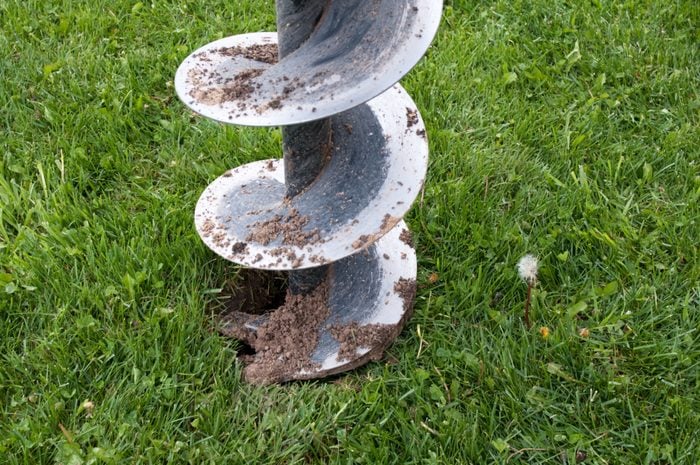
Hole Auger
Building a fence? If it’s a long one, you’ve got a lot of post-hole digging to do, and it may take days. Save time — and your back — by renting a gas-powered hole auger and do the entire job in an afternoon.
The cost to rent a one-man auger is about $80 a day, compared to $250 or more to buy one. A standard eight-foot wood fence needs post holes at least 28 inches deep. Most rental augers can do that.
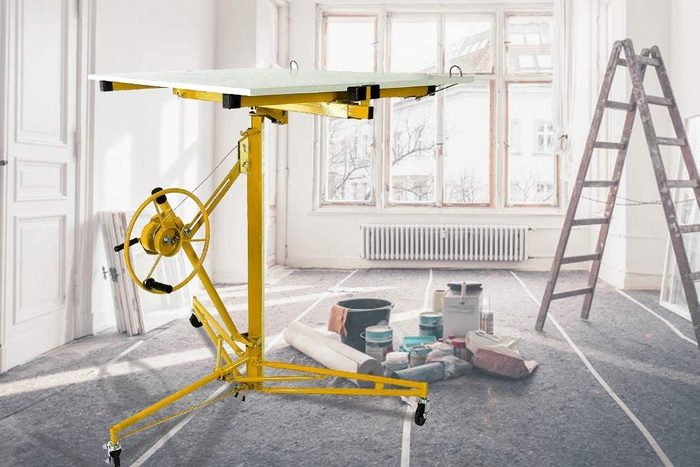
Drywall Equipment
If you’ve got a big drywall job ahead of you, the two pieces of rental equipment you’ll need are scaffolding and a drywall lift. Scaffolding rents for about $100 a week. A drywall lift, which wedges drywall sheets against the ceiling, costs about $140 a week.
You can buy scaffolding and a drywall lift for a little more than $150 each. But they’re awkward to store when you only need them once, so it’s better to rent them. Make sure the wheels lock.
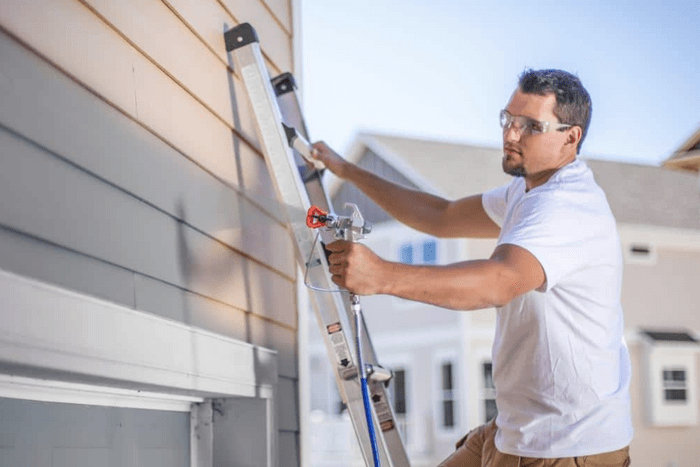
Airless Paint Sprayer
Whether you’re painting indoors or out, an airless sprayer makes the job faster and easier, with better results than rolling or brushing.
A decent gas-powered airless paint sprayer for outdoors or an electric one for indoors costs from $500 to $900, but you can rent one for $100 a day or less. A rental unit comes clean, lubricated and ready to go, which may be more than can be said for one you maintain yourself.
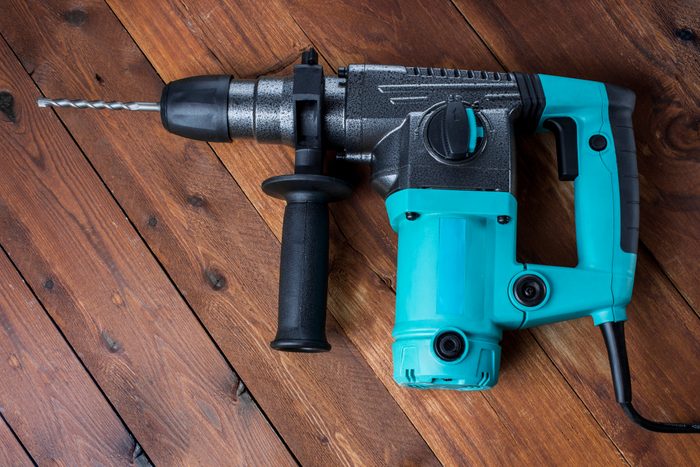
Rotary Hammer
When you need to punch a hole in a concrete foundation for a plumbing pipe or dryer vent, you need the percussive action of a hammer drill. Buying one will set you back a couple of hundred dollars, or you can rent one for about $29 for four hours. So when you have a quick job, renting makes sense.
The bit you need for chiseling or drilling isn’t normally supplied with the tool, so be sure the rental outlet has one. It might be included with the rental price, or you might have to buy it separately. Consider buying a used tool instead of a new one.
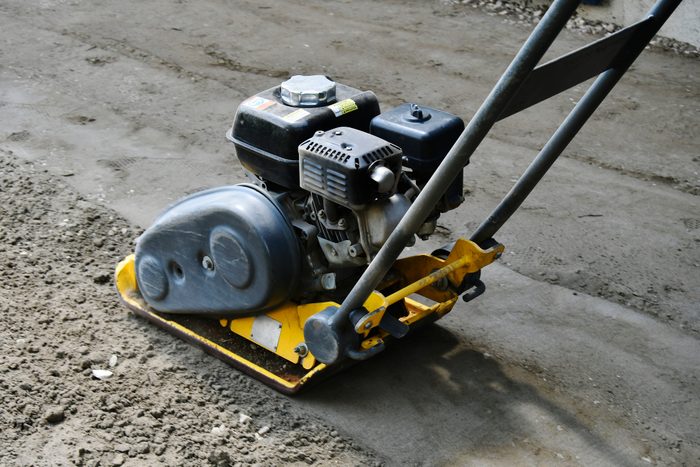
Plate Compactor
You’ll need a plate compactor to compress a base for a patio, walkway or concrete subfloor and many other outdoor jobs. The purchase price for this gas-powered machine is between $500 and $1,800, but you can rent one for about $89 a day ($62 for four hours).
You’re unlikely to use this tool often, so renting one makes sense. It’s a heavy machine you might want to have delivered, so don’t forget to ask about delivery costs.
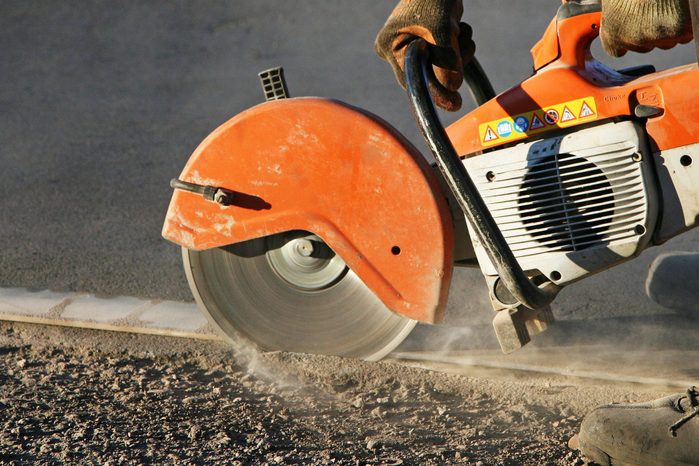
Concrete Saw
Need to install a sump pit in the basement or cut out a section of a concrete or brick wall? That’s a job for a concrete saw. You can purchase a serviceable one for $250, while a top-notch one runs closer to $1,000. A walk-behind concrete saw costs even more.
Renting a quality Makita handheld or a Husqvarna walk-behind for $89 a day is definitely the way to go. You can also rent a diamond blade to go with it and save on that, too.
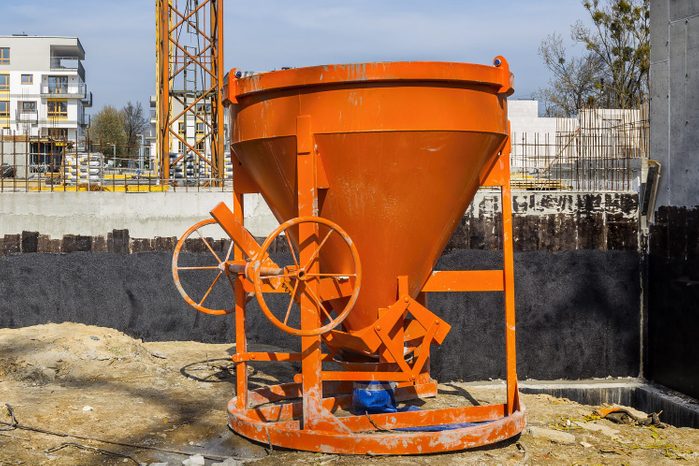
Concrete Mixer
That concrete isn’t going to mix itself. You can do it by hand or use a mechanical mixer, and the mixer wins out in most situations because it’s much faster.
A towable gas mixer rents for about $100 a day and a portable electric one for about $46 per day. Outlets that rent concrete mixers usually also rent the other tools you’ll need. Pole floats go for $15 a day, edgers/groovers run $15 a day and gas-powered trowels for finishing large surfaces cost $113 a day.
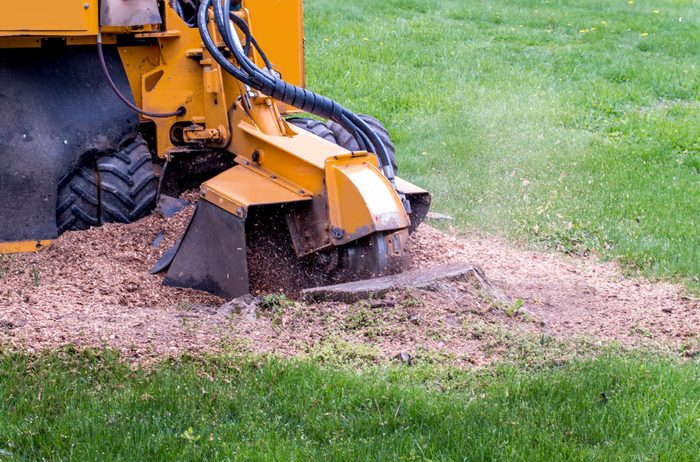
Stump Grinder
Got a large tree stump smack in the middle of the yard? You could try decomposing it with chemicals, which takes months or even years. Or you could use a stump grinder to remove it in an afternoon.
A small stump grinder costs about $36 an hour to rent. A heavy-duty one for large stumps goes about $46 an hour. On the other hand, it costs $2,000 to $3,000 to buy one. It shouldn’t take more than a few hours to remove a single stump, so the hourly rate is definitely a bargain.
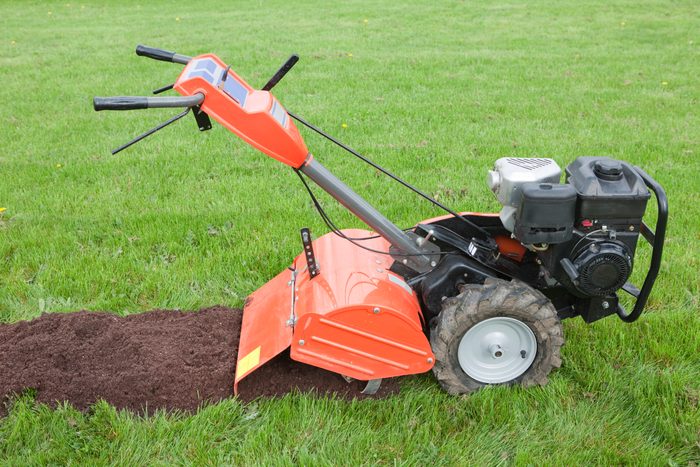
Tiller
If you’re just getting your garden ready for the spring crop, go ahead and spend $125 for an electric tiller. You won’t save much by renting. If you’ve got some serious ground to turn over and you need a more powerful gas-powered tiller, it’s better to rent.
Tilling takes time, so it’s better to rent by the day or week than the hours. Expect to pay about $88 a day or $314 a week. That’s still a pretty good saving, considering a new gas-powered tiller costs $600 or more.
Note: Some experts advise against tilling garden soil.

Traffic Control
When you’re working close to the road — perhaps digging up a sewer or repaving the driveway — you have to think about oncoming traffic. Rental outlets can help, because they usually stock barricades, cones and delineator posts that rent for around $1 a day each.
You can also get road signs that say “Slow” or “Construction Ahead” ($15 a day; $46 a week). On the rare occasion you need one, you’ll be able to find towable solar flashing arrow boards for $100 a day at some outlets.

